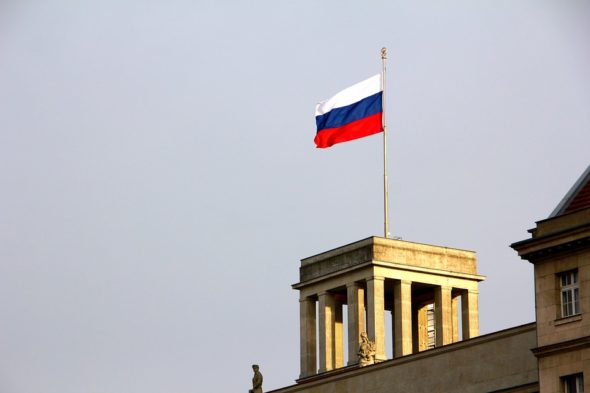„Russia’s entire policy is geared toward using gas prices to cause destabilization. They go up as soon as new drama starts to unfold somewhere in the world,” says Piotr Napierała, PhD, historian and commentator on international relations in an interview with BiznesAlert.pl.
BiznesAlert.pl: In recent years, discussions aimed at finding a third way in international relations have become fashionable at universities. At the turn of the century, we had clear goals like joining the European Union and NATO. Then there were interesting concepts about Poland balancing between the West and Russia like Viktor Orban’s Hungary. Can you evaluate this idea from the perspective of Russia’s attack on Ukraine?
Piotr Napierała: Viktor Orban is trapped. The political forces in Hungary are already rebelling against him. He is alone with one foot in the European Union and the other in Russia. Between the collapse of the Soviet Union and 2005 Russia did not stand up to the West. Today it is hard to believe that Vladimir Putin handed over Iraq’s air defense plans, which came in handy during the West’s intervention. Even then the cracks in the unanimity of the West were already visible. Even then, France and Germany were against, and the Anglo-Saxons were in favor of the intervention, because they already had some forces in the Middle East. The West was divided then, but today it seems united in the face of the Russian threat, although there are different ideas on how to respond to it. We have an Anglo-Saxon and a Franco-Germanic core. Orban tries to block Anglo-Saxons and strong NATO initiatives which they usually lead with Norwegians and Danes, but inside the European Union he is more cooperative and navigates between Russia and EU countries closer to the Union than NATO.
Could Poland do the same?
We have never done this and there has never been such a trend. We would have to be more vulnerable to German influence. The sentiment toward Orban is deceptive, as is the whole claptrap about Poles and Hungarians being like brothers. We have no common language or culture. Historians mostly do not share this optimistic outlook. We have other allies.
Some claim that Orban’s maneuvering makes economic sense, because in the end he gets cheap hydrocarbons from Russia.
It all depends on how it will end for Hungary. At this point Orban is on notice, and he is still afloat only because Fidesz belongs to the European People’s Party. He is better anchored in the European Union than the Law and Justice party (the ruling party in Poland – ed.). The position of our government is different. It tried to strengthen the European Conservatives and Reformists. Brexit is the biggest problem. There are other eurosceptic parties – „Europe of nations parties” according to de Gaulle, who spoke of national interests coordinated by the European Commission. They may, but do not have to be pro-Russian, because this camp is diverse. It is sometimes reduced to a common denominator to make anti-eurofederalism repugnant. This is what our government-controlled media is doing with France and Germany, but it is in the energy sector that you can see the differences between them, because the French wanted to have their own nuclear power without Russian interference with a federalised Europe. Macron does not practice pro-Russian politics. But the Germans refuse to see Russia for what it is. It seemed to them that it was possible to make Russia a normal country with the help of trade, for example, with the help of gas trade and the Nord Stream 2 project. George Bush and Barack Obama wanted to do the same with China. It could have worked, but it didn’t. There is one platform which assumes that Europe must defend itself, and this idea requires a certain amount of optimism towards Russia, which should not interfere, and perhaps could even contribute to this project, whereas the entirety of Russian policy is aimed at destabilisation with gas prices. They go up as soon as new drama unfolds somewhere in the world. When Germany sided with Russia for the first two days of the war and blocked Russia’s expulsion from SWIFT, France immediately supported this idea. It promptly resorted to the stick and carrot method. Germany sat on the fence and decided not to open the „sanctions against Russia” book. The Polish media tend to flatten this problem. Macron is fleeing to eurofederalism after the failure of the French economic reform, and that is, in my opinion, a good diagnosis. Perhaps that is why the Civic Platform (one of the main opposition parties in Poland – ed.) has become more pro-French, because it has noticed that Germany is not on the federation bandwagon entirely.
Maybe Berlin doesn’t want to take responsibility, because its economy is already suffering from the oil embargo? How can Russia use fossil fuels to destabilize the EU policy, which, while it is ripe with feuds, is consequently heading in the same direction?
Russia has been caught red handed a few times when supporting pro-Russian parties in Europe. The pro-government media in Poland claim that two fifths of European politicians are bought and paid for by Russia, but how can we verify this?
Interview by Wojciech Jakóbik









